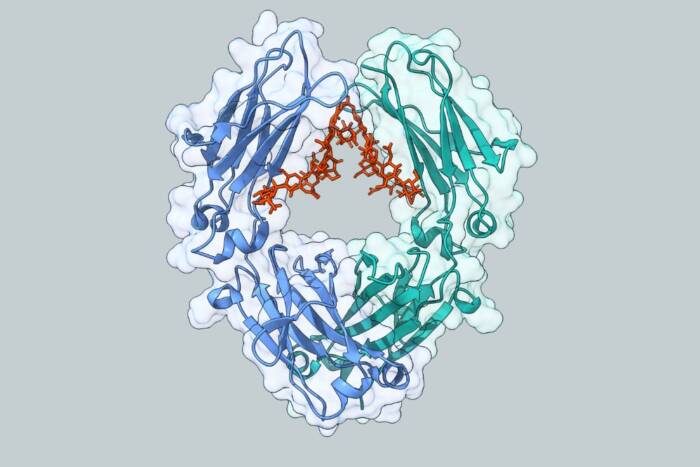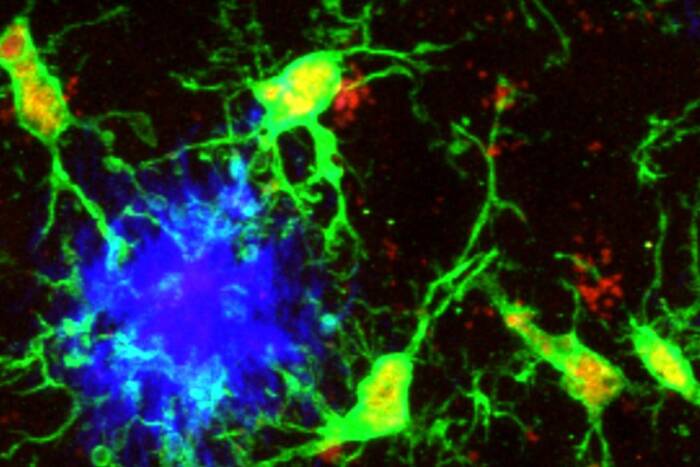Scientists get down to business
by TALLEY HENNING BROWN
Geoffrey Smith isn’t a scientist; he’s a businessman. But Rockefeller’s newest graduate instructor believes that successful scientists need basic training in economics and law just as much as they need advanced training in chemistry and genetics. With a new course called “Drug Development: From Discovery to Commercialization,” Mr. Smith, a seasoned health care venture capitalist, is spearheading Rockefeller University’s newly launched Science and Economics Program. Initially conceived during his work with The Rockefeller University Council and the Bridges to Better Medicine Steering Committee, the program is being designed to provide Rockefeller scientists with a greater understanding of the relationships between science on the one hand and economics, law, politics, ethics and society on the other.
Mr. Smith, currently a cofounding managing partner of Ascent Biomedical Ventures, has been active with the university’s development program since 2006. Less than a year into his work with The Rockefeller University Council and the Bridges to Better Medicine Forum, Mr. Smith saw how his skills could be applied to an entirely different Rockefeller constituency — its students.
With his background in law, finance and management pertaining to emerging health care companies, Mr. Smith has a unique perspective on the scientific endeavor as it exists outside the laboratory. He received a law degree from the University of Pennsylvania in 1992 and then worked with firms specializing in international business. In 1996, he accepted an offer from a client in the health care industry to direct corporate development. “One reason that was a comfortable move for me is that I grew up around medicine,” says Mr. Smith, whose father was chief of cardiology at Brigham and Women’s Hospital. “I spent time in the labs during the summers.”
Since helping that first start-up client — AHT Corporation, a provider of e-commerce applications for health care companies — become a successful public company with $70 million in annual revenue, he has cofounded and/or managed four other companies that provide crucial technology, financial and advisory services to early-stage biotechnology, biopharmaceutical and medical device companies. “An academic may think of a scientific problem in a very different way than a commercially oriented scientist, which is also very different from how a marketing person may think of it,” Mr. Smith says. “There is an incredibly wide range of disciplines involved in getting science to the marketplace, where it’s actually going to impact somebody’s life.”
It was that perspective that last year led Marnie Imhoff, vice president for development, to bring Rockefeller President Paul Nurse into the conversation with Mr. Smith. Together, they agreed to launch a 10-week course called “Ways and Means: The Economic Edge of Science,” taught last fall by Mr. Smith. With 35 students and postdocs (and a wait list of nearly as many more), the class covered issues like the impact of funding sources, intellectual property, technology transfer, government regulation, media and politics.
The end evaluation was overwhelmingly positive. “Geoff’s course raised a lot of interesting philosophical questions regarding the ultimate goal of science and its interaction with the world at large, especially big business,” says Duncan Smith, student in the Laboratory of Molecular Biology and Biochemistry. “Even academics are no longer insulated from the economic impact — real and potential — of science. This class was invaluable both on a factual level and as a collaborative learning experience.”
Enrollment for the five-week Drug Development course, begun May 1, was capped at 50, but also had a sizeable wait list. “There is an incredible amount of enthusiasm for this subject matter. Our graduates have many options open to them, and Geoff’s initiatives are providing students and postdocs with invaluable information about interfaces between science and society,” says Sidney Strickland, dean of graduate and postgraduate studies.
Mr. Smith, who is teaching pro bono, has added guest lecturers, including financial and industry executives, to the Drug Development syllabus, in an effort to offer the most specialized information possible. “Speaking as a venture capitalist, the people I work with — scientists — tend to be incredibly smart within their own domain and they pick up things very quickly, but there’s still a steep learning curve when it comes down to the business end of things, and traditional training models for scientists don’t provide the tools necessary to think beyond the bench,” says Mr. Smith.
Both courses will be taught again next academic year and others are in the works on subjects like bioethics and the politics of biotechnology. Moving forward, the Science and Economics Program will also comprise an annual lecture series and symposia, as well as partnerships with private- and public-sector organizations committed to similar or complementary goals within academia, industry, media and politics.
Mr. Smith and the Development Office have begun efforts to find funding for these and other future directions of the program; so far they have secured $50,000. “This is a wonderful example of the way in which a benefactor and volunteer can make an enormously important contribution to the well-being of the university,” says Ms. Imhoff. “Geoff’s involvement with Rockefeller, coupled with his exceptionally keen vision, led him to create a whole new program for the benefit of the Rockefeller community.”


